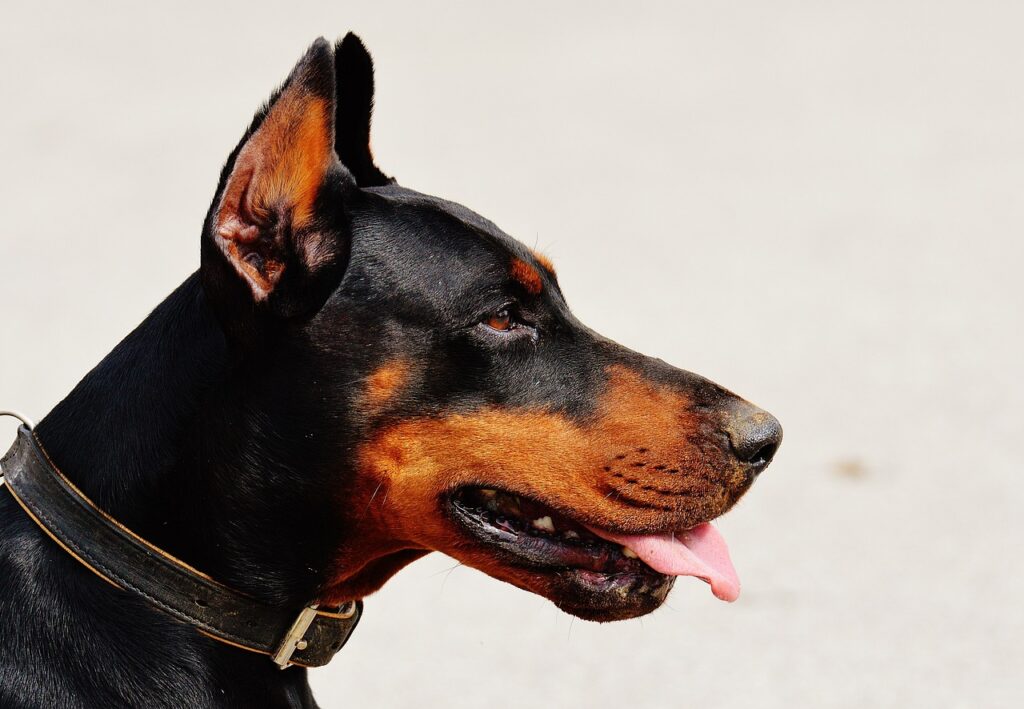Can Dogs Eat Crawfish? A Vet’s Summary

Crawfish contains iron and selenium, but can dogs eat crawfish?
While dogs may eat crawfish, it’s vital to be cautious and take certain aspects into account. The meat of a boiled crawfish is not poisonous to dogs, but there are certain precautions to take. Many people season their crawfish with spices, garlic, onions, and other flavorings that dogs may not like. These can be dangerous to them.
Let’s dive in:
Benefits of crawfish for dogs
When cooked properly, crawfish might provide some nutritional advantages to dogs. Here are some of the potential advantages:
- Crawfish is high in protein, which is necessary for the maintenance and repair of bodily tissues as well as overall muscular health in dogs.
- Crawfish includes a variety of vitamins and minerals, including B vitamins (such as B12 and niacin), phosphorus, zinc, and selenium. These minerals are essential for the general health of a dog.
- Omega-3 Fatty Acids: Crawfish, like other shellfish, includes omega-3 fatty acids, which help dogs’ skin and coats. Omega-3s are also anti-inflammatory and can help with joint health.
Regardless of these possible benefits, it is critical to remember the precautions and potential negatives outlined previously. The seasonings, spices, and other chemicals routinely used in the preparation of crawfish for human consumption may be toxic to dogs. Furthermore, the high fat content of cooking techniques, as well as the possibility of shell ingestion, should be considered.
Before introducing new items into your dog’s diet, always contact your veterinarian, especially if your dog has any pre-existing health concerns or dietary restrictions. Your veterinarian can advise you based on your dog’s individual needs and health situation.

How to safely give crawfish to dogs?
If you wish to share a modest bit of plain, cooked crawfish with your dog, you may do so more securely if you follow these guidelines:
- Remove Shells: Before feeding crawfish to your dog, make sure all shells are removed. Shells can be a choking danger and create stomach problems.
- Avoid Seasonings: Do not season the crawfish with any seasonings, spices, or sauces. Dogs do not require extra salt, garlic, onions, or other ingredients included in human recipes.
- Simply Boiled Or Steamed: Cook the crawfish without any possibly dangerous additions. They can be prepared by boiling or steaming.
- Moderation Is Essential: As a treat, give a tiny bit of simple, cooked crawfish on occasion. Remember that dogs have varied dietary requirements, and that their primary source of food should be nutritionally balanced dog food.
- Keep An Eye Out For Allergic Reactions: After digesting the crawfish, keep an eye out for any symptoms of allergies or unpleasant reactions in your dog. Contact your veterinarian right once if you develop itching, swelling, vomiting, diarrhea, or any other odd behavior.
- Speak Your Veterinarian: Before introducing any new food into your dog’s diet, particularly unusual treats such as crawfish, speak with your veterinarian. They can offer advice based on your dog’s individual health issues and nutritional needs.
While crawfish can provide some nutritional advantages, they should not be used in place of your dog’s usual, balanced diet. Dogs have distinct nutritional requirements, and their major source of nourishment should be high-quality dog chow that has been specially developed to satisfy those requirements. Crawfish and other treats should be offered in moderation.
Will crawfish make a dog sick?
Crawfish that have been properly prepared are not intrinsically hazardous to dogs and can be consumed in moderation. However, there are certain potential hazards and causes that might cause a dog to become ill:
- Seasonings And Additives: Crawfish prepared for human consumption frequently contains seasonings, spices, butter, or other additions that are toxic to dogs. These substances have the potential to induce gastrointestinal distress or other negative effects.
- High Fat Content: Some cooking methods include adding butter or oil to crawfish, which might be excessively fatty for a dog’s digestive tract and cause pancreatitis or other gastrointestinal problems.
- Crawfish shells, if not removed, can constitute a choking threat or create digestive disorders in dogs.
- Allergies: Some dogs, including crawfish, may be allergic to shellfish. Allergic responses can cause moderate symptoms such as itching to more serious problems such as trouble breathing.
Digestive Sensitivity: Dogs’ digestive systems differ from those of people, and certain foods that are acceptable for humans may induce stomach discomfort in dogs.
If you wish to enjoy crawfish with your dog, you must take the following precautions:
- Take out all the shells.
- Seasoning and additions should be avoided.
- Crawfish can be served plain, boiling, or steamed.
- As a special treat, just give a tiny quantity.
Keep an eye out for any symptoms of allergic reactions or stomach trouble in your dog.
If you are unclear whether crawfish is safe for your dog, you should always speak with your veterinarian. They may offer tailored advice depending on your dog’s health, nutritional requirements, and any pre-existing issues.

A vet’s summary
Before introducing any new food, including crawfish, into your dog’s diet, always speak with your veterinarian. Veterinarians are aware of your dog’s individual health issues, nutritional needs, and probable allergies, allowing them to give customized advice.
While basic, well-cooked crawfish may be healthy for dogs in moderation, your doctor can help you determine whether it’s a good addition to your dog’s diet depending on considerations like:
- Allergies: If your dog has a history of allergies, particularly to shellfish, consult with your veterinarian to see whether it is safe to introduce crawfish.
- Overall Health: Dogs with certain medical disorders, such as pancreatitis or gastrointestinal sensitivities, may require a special diet, and high-fat meals, such as buttered or seasoned crawfish, may be inadvisable.
- Amount Size: Veterinarians can advise on the proper amount size for delicacies like crawfish to avoid contributing to obesity or digestive disorders.
- Preventing Choking Hazards: Vets may advise on correct preparation procedures, such as removing shells and ensuring the crawfish is properly cooked, to lessen the danger of choking.
The gut contains most of a dog’s immune system. Probiotics can help with digestion and nutrient absorption by promoting a healthy balance of gut flora. They can be especially effective for dogs suffering from gastrointestinal problems such as diarrhea or irritable bowel syndrome.
Making educated judgements regarding your dog’s nutrition, protecting their general well-being, and avoiding any health concerns requires the advice of your veterinarian. Priorities your veterinarian’s advice over generic information since they may give advice tailored to your dog’s unique needs.
Videos to watch
If you are wondering whether dogs can eat crawfish, watch this:
If you are wondering what food to feed your dog, watch this:






